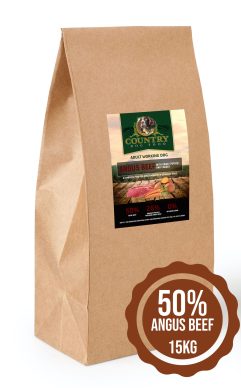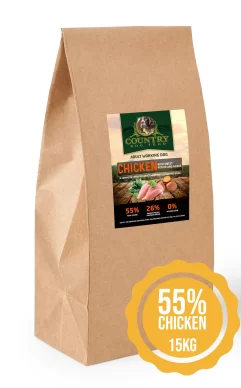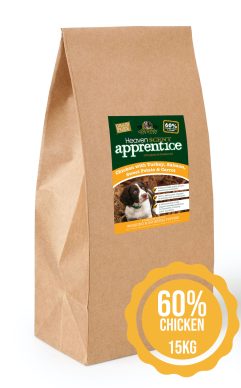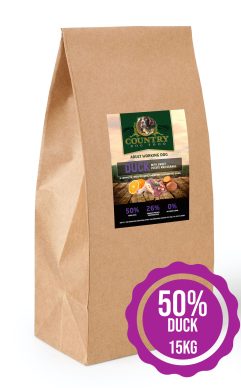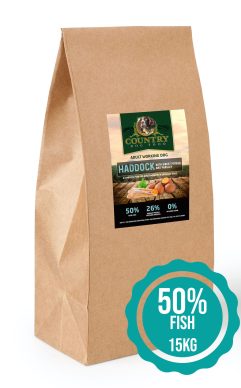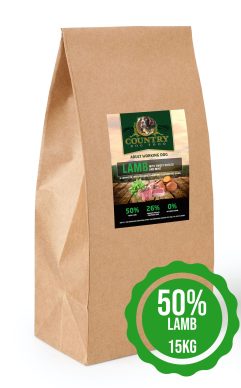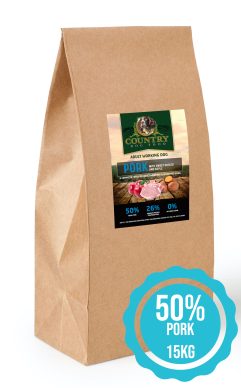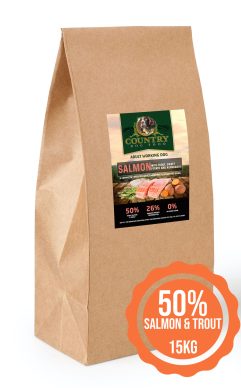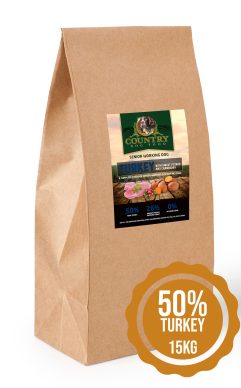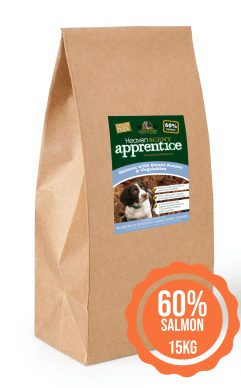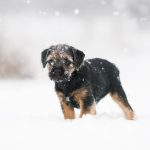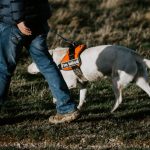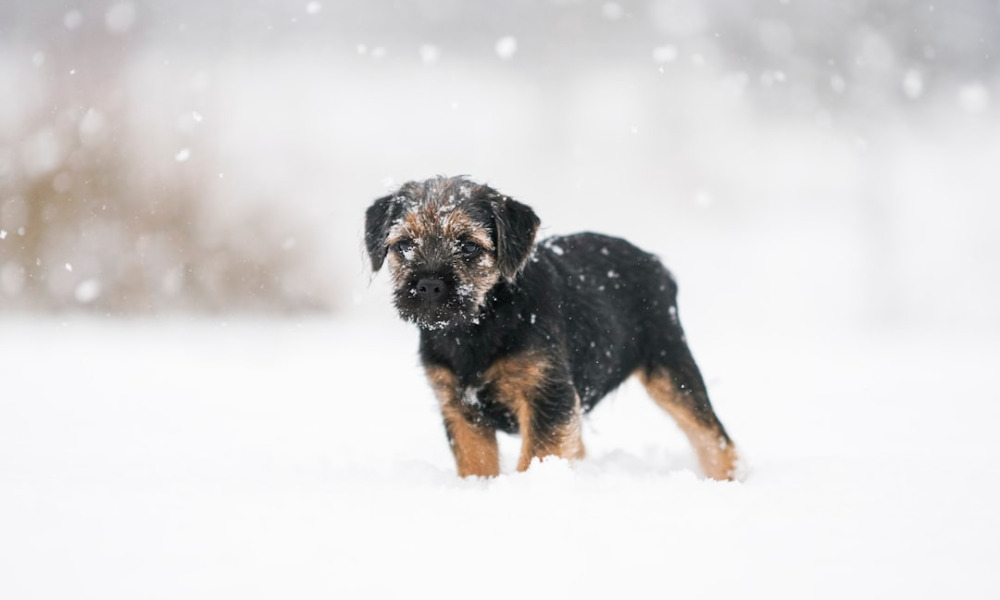
As temperatures drop, hardworking dogs—from sled dogs to herding and hunting breeds—need extra nutritional support to maintain peak performance. The cold weather increases their energy expenditure, making proper diet and hydration essential for endurance, strength, and overall well-being. Here’s how to keep your working dog fuelled and ready for winter’s demands.
Increased Caloric Needs in Cold Weather
Working dogs burn significantly more calories in winter as their bodies work to stay warm while performing demanding tasks. In sub-zero conditions, some breeds may require up to twice their usual calorie intake. Without proper nutrition, they risk weight loss, fatigue, and decreased stamina.
The key is to adjust feeding plans according to the workload, temperature, and individual metabolism. Observing your dog’s body condition score (BCS)—ensuring they maintain a healthy weight without excessive fat or muscle loss—can guide portion adjustments throughout the season.
The Best Diet for Winter Performance
High-Protein, High-Fat Nutrition
To sustain energy levels, working dogs need a diet rich in protein and fat. Protein supports muscle maintenance and recovery, while fat provides a dense, slow-burning energy source ideal for endurance activities.
Recommended Macronutrient Ratios:
- Protein: At least 30–40% of the diet
- Fat: At least 20–30% of the diet
Good sources of quality protein include:
✔ Lean meats (chicken, beef, lamb)
✔ Fish (salmon, sardines)
✔ Organ meats (liver, heart)
✔ High-protein kibble with named meat sources
Ideal fat sources for sustained energy:
✔ Chicken fat
✔ Fish oil
✔ Beef tallow
✔ Flaxseed oil
For dogs with extreme workloads, increasing fat intake beyond 50% of their caloric intake may be necessary.
Hydration: Essential Even in Cold Weather
Many dog owners mistakenly believe their pets need less water in winter. However, dehydration is a year-round concern, especially for active dogs. Cold air and dry winter winds cause increased fluid loss through respiration, and snow is not a sufficient water source.
Winter Hydration Tips:
- Ensure fresh, unfrozen water is always available—use heated water bowls if necessary.
- Soak kibble in warm water or broth to increase moisture intake.
- Incorporate wet food or hydrating broths into meals.
- Monitor urine colour—dark yellow urine may indicate dehydration.
Raw Diets, Kibble, and Supplements for Endurance
Choosing between raw feeding and kibble depends on the owner’s preference, convenience, and the dog’s individual needs. Both diets can be optimised for winter performance.
- Raw Diet: Rich in bioavailable nutrients and moisture; should be balanced with raw meaty bones, muscle meat, and organs.
- High-Performance Kibble: Look for formulas designed for active dogs with high protein and fat content.
- Hybrid Diets: Some owners mix raw food with kibble for a balanced approach.
Supplements for Cold-Weather Stamina
Adding specific supplements can help enhance endurance and recovery:
✔ Fish oil – Omega-3s for joint health and coat condition
✔ Electrolyte powders – Support hydration levels
✔ Glucosamine & chondroitin – Protects joints, especially for sled dogs
✔ Probiotics – Aids digestion in high-fat diets
Tailored Advice for Specific Working Dogs
🐕 Sled Dogs (Endurance Racing & Transport)
- Require up to 10,000 calories per day during peak season.
- Fat should be their primary fuel source (at least 50% of diet).
- Feed multiple small meals throughout the day for sustained energy.
- Electrolyte supplements are crucial due to heavy sweating under thick fur.
🐕 Herding Dogs (Border Collies, Australian Shepherds)
- Need quick-burning carbohydrates alongside protein and fat.
- Feeding a meal 1-2 hours before work ensures energy availability.
- Joint support is essential due to high-speed movements and sudden stops.
🐕 Hunting Dogs (Retrievers, Pointers, Spaniels)
- Higher protein helps muscle endurance over long hunting trips.
- Hydration is critical as they work in cold, damp conditions.
- Feeding post-hunt should prioritise fast-digesting proteins for recovery.
The Tail End: Wrapping Up Winter Nutrition
A well-planned winter diet ensures hardworking dogs maintain stamina, strength, and overall health. By increasing calories, optimising protein and fat intake, ensuring proper hydration, and tailoring nutrition to specific working needs, owners can keep their dogs performing at their best—no matter how harsh the winter gets.
Check out Our Selection of Foods or Working Dogs
-
Grain Free Angus Beef With Sweet Potato & Carrot – Adult Dog Food
£59.69 -
Grain Free Chicken with Sweet Potato & Herbs – Adult Dog Food
£55.72 -
Grain Free Chicken with Sweet Potato & Herbs – Cost of Living Special
£52.72 – £205.88 -
Grain Free Chicken with Turkey, Salmon, Sweet Potato & Carrot – Puppy Food
£62.19 -
Grain Free Duck with Sweet Potato & Orange – Adult Dog Food
£62.62 -
Grain Free Haddock with Sweet Potato & Parsley – Adult Dog Food
£64.57 -
Grain Free Lamb with Sweet Potato & Mint – Adult Dog Food
£63.39 -
Grain Free Pork with Sweet Potato & Apple – Adult Dog Food
£58.34 -
Grain Free Salmon with Trout, Sweet Potato & Asparagus – Adult Dog Food
£56.97

